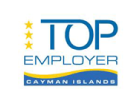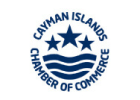Offshore Legal Jobs Frequently Asked Questions
by Graham on February 28, 2020
If you’re looking for an exciting legal career, and are considering offshore legal jobs, CML Offshore Recruitment is the number one specialist offshore recruitment consultancy for lawyers and barristers.
Nobody understands the offshore market like CML, that’s not just something we like to say, it’s true. Our consultants aren’t just experienced legal recruitment professionals, but are professionally qualified lawyers just like you, with diverse offshore experience and unrivalled market knowledge. All of our consultants have lived and worked offshore making them ideally placed to advise you on every aspect of your first, or next offshore move.
If you are looking to move offshore and aren’t sure which jurisdiction might be best for you, check out our blog outlining some of the key differences you’ll experience in lifestyle and career in some of the top offshore locations.
Q: What can I expect to earn working with an offshore law firm?
Smart job seekers look at the opportunity ahead of them and take advantage of the circumstance to get ahead of the competition.
Get Ahead of the Competition.
A: This depends wholly on the jurisdiction, the firm you join and your level of PQE.
In the Channel Islands, associates at the leading firms can expect to earn salaries in line with their contemporaries at silver circle firms in London. Further afield in the Cayman Islands, Bermuda, and the British Virgin Islands, associate salaries with the leading firms can exceed those at Magic Circle and top-tier US firms in London.
The remuneration structure in the offshore market varies from firm to firm. Generally speaking, offshore lawyers are paid a generous base salary plus a discretionary bonus but some firms offer a more modest base salary plus commission on billings.
A huge incentive for most lawyers considering a move offshore is the significant reduction in income tax. Rates vary from jurisdiction to jurisdiction and so does the cost of living.
Income tax rates for the major offshore financial centres
Cayman Islands – 0%
Bermuda – 4.75% (some employers will cover this)
BVI – 8%
Channel Islands – 20%
Hong Kong – circa 15%
Read more on remuneration for lawyers in the Cayman Islands here, as we break down typical compensation, relocation and benefits packages.
Q: How much experience (PQE) do I need for offshore legal jobs?
A: In short, the PQE requirements vary in each jurisdiction.
Cayman Islands: You are legally required to have 3 years PQE in order to practice as a lawyer. Most of the major law firms will interview candidates at the 2.5PQE mark with a view to employing them shortly after their 3PQE anniversary.
BVI: No legal requirement regarding PQE but most firms look for a minimum of 2 years of experience.
Bermuda: Again no legal requirement but it is very rare for firms to hire ex-pat lawyers with fewer than 5 years PQE.
Offshore firms in other jurisdictions such as the Channel Islands, Hong Kong and Singapore will consider lawyers from NQ level upwards so long as your training contract experience is relevant to the opportunity.
Q: Are there jurisdiction-related restrictions on my ability to practice as an offshore lawyer?
A: In order to practice law in the Cayman Islands and Bermuda you must be admitted and have practised in a commonwealth jurisdiction for the requisite number of years mentioned above. The majority of the ex-pat lawyers in the Cayman Islands and Bermuda come from the UK, Canada, Australia, New Zealand and South Africa.
To practice in the BVI, you must be admitted as a solicitor or barrister in England & Wales so the vast majority of ex-pat lawyers in BVI tend to come directly from the UK or other offshore jurisdictions.
In the Channel Islands, you are permitted to practice as a lawyer so long as you have commonwealth experience. However, those with long-term plans to live in the Channel Islands may also wish to gain admittance to the local bar. In order to become ‘Jersey qualified,’ you must have practised law on the island for two years and then sit a set of six exams. To become ‘Guernsey qualified’ you must have practised law on the island for three years and then sit a series of exams.
Q: How do the working hours at offshore firms compare with onshore firms?
A: This varies from firm to firm and from jurisdiction to jurisdiction but you should not assume that life in the office will be more relaxed than in your present position, contrary to what you may believe we don’t all work from the beach.
The main difference with offshore work is the need to handle multiple matters simultaneously, which can be a big change for lawyers accustomed to working on one deal for months at a time. There are also specific demands placed on offshore lawyers that may not be immediately apparent to those coming from a big city environment, in particular, the emphasis on legal analysis rather than transaction management. Notwithstanding this, working hours are generally more predictable offshore and billable targets, whilst similar to those at leading onshore firms, can be achieved more easily in a normal working day. Couple this with incredibly short commutes and working life as an offshore lawyer should in most cases seem far less stressful.
Q: What are the immigration requirements for offshore legal jobs?
A: Cayman, BVI, and Bermuda require non-citizens to have work permits, which must be obtained by the employer on the basis of a specific job. With regard to relocating with a partner or spouse, a legal spouse can be classified as a dependent on their partner’s work permit in order to reside on island. They are also legally permitted to search for work as a ‘dependant’ on their spouse’s permit. Unmarried partners are not permitted to reside without having a job and permit of their own.
In the Channel Islands, work permits are not required for UK passport holders. Commonwealth citizens may be exempt if they qualify for a UK ancestry visa and all other professionals will need to obtain a ‘Skilled Worker Visa’.
For more information on offshore legal jobs, please send a copy of your CV to Graham Blyth at graham.blyth@cml.ky
SHARE THIS ARTICLE
Recent Articles









